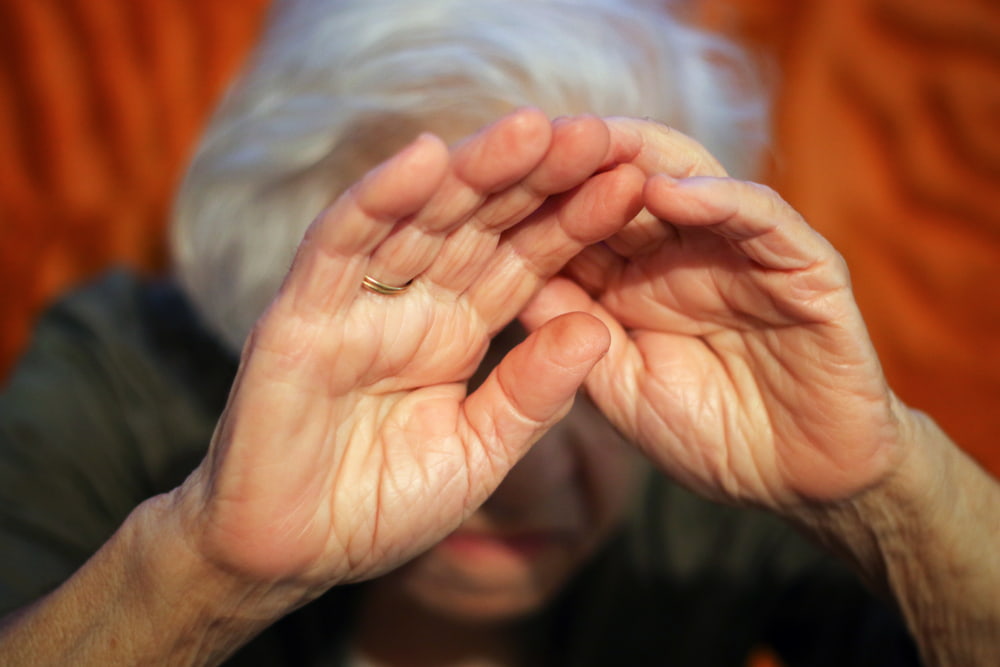Home » Nursing Home Abuse Lawyer » Illinois Nursing Home Bedsores Attorneys
Caring for an elderly parent, sibling, or loved one often involves tough decisions—none more challenging than entrusting their care to a nursing home. Families choose these facilities with confidence that the staff will provide expert medical care, careful supervision, and vigilant attention to their loved one’s needs. However, when bedsores develop under a nursing home’s care, that trust is violated.
Bedsores, also known as pressure sores or pressure ulcers, indicate more than just inadequate oversight. They often serve as a glaring red flag of neglect. If your loved one in Illinois is experiencing bedsores while receiving care in a nursing home, you have every right to feel frustrated, angry, and betrayed. Thankfully, there are actions you may take to protect them and hold the facility accountable.
TopDog Law Personal Injury Lawyers connects families with experienced nursing home injury attorneys in Illinois. These local attorneys focus on handling cases of neglect and abuse and protecting the rights of vulnerable nursing home residents and their families.

It costs absolutely nothing to see if you have a case
Bedsores are injuries that form on the skin and underlying tissue due to prolonged pressure in one spot. They typically develop on bony areas of the body, such as the hips, tailbone, heels, ankles, or elbows, where the skin is thinner and less cushioning.
Individuals who are bedridden, confined to a wheelchair, or unable to reposition themselves are particularly susceptible to bedsores. These wounds occur when nursing home staff neglect to implement simple preventative measures, such as repositioning residents, regularly inspecting their skin, maintaining clean and dry bedding, and providing proper nutrition and hydration. In the absence of these fundamental care standards, bedsores often develop quickly.
To gain a better understanding of their progression, bedsores are categorized into four stages based on severity:
Stage 1 – The skin remains intact but appears red, irritated, or warmer than the surrounding areas. The resident may express discomfort or pain.
Stage 2 – The skin breaks open, often forming a blister or shallow open wound. This stage carries a greater risk of infection.
Stage 3 – The wound deepens, damaging the tissue beneath the skin, and may emit discharge, indicating the presence of infection.
Stage 4 – The most severe stage. Deep wounds expose muscles, tendons, or even bones, making treatment urgent and extremely difficult.
Nursing home staff are trained to prevent bedsores through diligent care, but neglect makes residents susceptible to these painful and debilitating injuries.

Under Illinois regulations, nursing homes have a legal and ethical duty to provide proper care. However, instances of neglect frequently arise from factors such as:
Failure to Reposition Residents: Prolonged pressure on a single body part cuts off blood supply, causing tissue damage. To reduce this risk, nursing home staff should reposition immobile residents at least every two hours.
Poor Hygiene or Maintenance: Unclean or damp bedding and soiled clothing irritate the skin, increasing the likelihood of bedsores. Regular hygiene practices help prevent irritation and the spread of infection.
Insufficient Nutrition and Hydration: Adequate nutrients and fluids enhance the skin’s resilience. Residents who are malnourished or dehydrated experience compromised skin integrity, which slows their healing ability.
Understaffing: Many nursing home residents in Illinois are placed in facilities struggling with persistent staff shortages. When a facility has insufficient staff, it frequently cannot meet even basic care standards, putting residents at significant risk.
While a single act of neglect may not always lead to long-term harm, repeated failures create conditions that allow bedsores to develop and worsen. If you notice signs of neglect in an Illinois nursing home, it may be part of a pattern that requires immediate attention and accountability.
Bedsores signify far more than mere discomfort; they may result in serious health complications if not treated. As the severity increases, so do the associated risks:
Dangerous Infections: Open sores are ideal breeding grounds for bacteria, heightening the risk of cellulitis, osteomyelitis (bone infection), and sepsis (a life-threatening infection that spreads throughout the body).
Prolonged Recovery: Once bedsores progress to advanced stages, they necessitate aggressive treatment that may take weeks or months. This treatment includes surgeries, antibiotics, and specialized wound care.
Permanent Scarring or Disability: Severe wounds may result in lifelong scars, limit mobility, and diminish the individual’s ability to engage independently in daily activities.
Life-Threatening Emergencies: Advanced ulcers that become infected may lead to complications such as gangrene or sepsis, both of which are fatal without prompt and substantial medical intervention.
Providing timely and thorough medical attention is critical; however, the safest strategy is to prevent these injuries before they occur. Illinois nursing homes are required to maintain systems and protocols, so bedsores never develop under their care. When they fail, loved ones may justly hold them accountable.
When family members enter a nursing home, they rely entirely on staff to fulfill their basic needs. Observing any signs of neglect is concerning and signals that something has gone awry. Keep an eye out for these signs that may suggest neglect:
Visible Bedsores or Skin Issues: Unexplained wounds, redness, or bruising are all causes for concern.
Unclean Environment: Dirty clothing, soiled bedding, or unpleasant odors indicate poor caregiving practices.
Weight Loss or Dehydration: These may suggest that your loved one isn’t receiving adequate meals, snacks, and fluids as needed.
Unanswered Complaints: If your loved one expresses discomfort, pain, or concerns and staff appears indifferent or dismissive, this is a warning sign.
Unexplained Changes in Behavior: Depressed, withdrawn, or fearful behavior may suggest mistreatment, neglect, or abuse.
When visiting your loved one, note their physical and emotional state and the conditions of the nursing home. Illinois families have every right to demand high standards of care for their relatives and should feel empowered to investigate or speak up about potential neglect.

When families confront nursing homes regarding bedsores, many facilities employ defensive strategies to evade responsibility. Understanding these tactics empowers families and their attorneys to counter misleading claims and construct strong cases for accountability. Here are some of the most common defenses used by nursing homes and how experienced lawyers dismantle them:
“The condition was inevitable.” Nursing homes often argue that a resident’s condition—such as advanced age, preexisting illnesses, or immobility—made bedsores unavoidable. While certain health factors may complicate care, bedsores are nearly always preventable with proper attention. Attorneys counter this claim by demonstrating how specific actions or inactions contributed to the sores. For example, evidence that the staff failed to reposition the resident or provide adequate nutrition weakens the defense of inevitability.
“The family caused delays in reporting.” Facilities may blame families for failing to recognize or report issues like early-stage bedsores, shifting the focus away from the nursing home’s negligence. Attorneys refocus the case by emphasizing that caregiving staff are responsible for monitoring and addressing residents’ health conditions, regardless of family involvement.
“We provided acceptable standards of care.” Nursing homes may claim to follow the applicable state and federal standards. However, documentation and staffing records often tell a different story. With the assistance of experts, attorneys assess whether the facility adhered to protocols for repositioning, hygiene, and wound care. Any evidence of understaffing or failure to meet care plans may demonstrate that the facility fell below acceptable standards.
“The bedsores originated from a previous facility or hospital.” Another common defense is asserting that the bedsores were present before the resident began receiving care. Time-stamped medical records quickly counter this argument, demonstrating that the wounds developed and worsened while the individual was in the accused facility.
By preparing for these defenses, legal professionals see that families may hold nursing homes accountable, regardless of any excuses they present.

If you suspect neglect in an Illinois nursing home, it’s crucial to act quickly. Delaying action weakens your case and even worsens your loved one’s situation. Here’s why taking prompt action is essential:
Preserving Evidence: Evidence of neglect—such as medical records, staffing logs, or photographs of bedsores—will not last indefinitely. Nursing homes may lose, alter, or even destroy documentation, particularly if they are aware of impending legal claims. Families should document everything as soon as they suspect neglect. This includes taking photographs of injuries, maintaining records of conversations with staff, and noting any changes in their loved one’s condition.
Protecting Your Loved One’s Health: Bedsores usually worsen over time if left untreated. Acting swiftly helps your family member receive the necessary medical attention to prevent pain, infections, or life-threatening complications. Contacting experienced attorneys early assists you in exploring relocation options if the current facility fails to provide safe care.
Avoiding Statute of Limitations Deadlines: Illinois law establishes a strict time limit—known as the statute of limitations—for filing lawsuits. In most cases of nursing home neglect, the deadline is two years from the date of the injury or its discovery. Failing to meet this deadline means you forfeit the right to seek compensation or accountability in court. Consulting an attorney early on helps you remain well within these legal timeframes.
Leveling the Playing Field: Nursing homes and their insurers often begin building their defense immediately. They may attempt to deny responsibility or offer a quick, low settlement to avoid scrutiny. By reaching out to experienced legal professionals immediately, families stay one step ahead and resist these tactics.
Illinois laws impose strict standards on nursing homes. Facilities must safeguard their residents’ safety and dignity, and failing to uphold this responsibility creates legal avenues for families to hold negligent parties accountable. If a nursing home’s neglect leads to bedsores, Illinois law allows families to pursue compensation for various damages, including:
Medical Expenses: These encompass costs for wound care, surgeries, hospital stays, medications, and other essential treatments.
Pain and Suffering: Bedsores lead to significant physical and emotional distress—damages that the law acknowledges.
Relocation Costs: Families often need to move their loved ones to higher-quality facilities, which may significantly increase expenses.
Punitive Damages: If the nursing home acted recklessly or with gross negligence, courts may impose additional financial penalties as punishment.
While no legal action erases the suffering caused by bedsores, seeking compensation provides resources for improved care and conveys a clear message that substandard treatment is intolerable.


Filing a case against a nursing home is a complex and emotional process, but you don’t have to go through it alone. An experienced Illinois bedsore lawyer offers invaluable support and guidance every step of the way. Here’s how a lawyer assists you:
Thorough Investigation: Attorneys review medical records, facility policies, and staffing logs to identify patterns of neglect. They may also interview witnesses, including staff and other residents, to construct a detailed timeline of events.
Evidence Collection: Lawyers gather photographs of bedsores, medical documentation, and other evidence to illustrate the severity of the injuries and the nursing home’s involvement in causing them.
Negotiating with Insurers: Nursing homes and their insurance companies frequently attempt to downplay neglect or seek low settlements. A committed lawyer fights for fair compensation that accurately reflects the full extent of your family’s losses.
Litigation If Necessary: If the responsible parties deny accountability, your lawyer takes your case to court, so your loved one’s rights are fully upheld.
Finding an attorney through TopDog Law enables you to focus on your loved one’s health and recovery while pursuing accountability and justice.
The presence of bedsores isn’t merely a medical issue—it signifies neglect that no family should tolerate. TopDog Law Personal Injury Lawyers connects Illinois families with experienced local attorneys who comprehend nursing home neglect cases. These professionals are equipped to investigate even the most hidden instances of mistreatment and advocate for the compensation your family deserves. By taking this step, you send a clear message that negligence in Illinois nursing homes will not go unchecked. Call TopDog Law Personal Injury Lawyers today at (708) 734-6928.

James Helm, Nursing Home Bedsore Lawyer in Illinois
TopDog Law is known for its relentless pursuit of justice. Our experienced team fights tirelessly to secure maximum compensation for our clients, ensuring every case is handled with dedication and determination.
We understand the emotional and financial toll that personal injuries can take. That’s why we prioritize open, compassionate communication and provide tailored support throughout the legal process. With free consultations and a contingency fee model, you won’t pay a dime unless we win your case.
With TopDog Law on your side, you can rest assured that you have a tenacious, experienced team fighting to get you the compensation you deserve, no matter where you’re located.

TopDog Law is a national marketing network for law firms, including Helm Law Group, LLC, which license the TopDog Law name and separately operate in states where they are each licensed. James Helm is licensed to practice in Arizona and Pennsylvania. Helm Law Group, LLC operates in Arizona.
3225 Cumberland Blvd, Ste 100
Atlanta, GA 30339
111 Presidential Blvd., Suite 251
Bala Cynwyd, PA 19004
1 South St, Suite 2125A
Baltimore, MD 21202
950 22nd Street N. Suite 600
Birmingham, AL 35203
361 Newbury Street, 3rd Floor
Suite 310
Boston, MA 02115
305 E 204th St.
Bronx, NY 10467
215 E 5th St, Unit 1 Suite 400-3
Brooklyn, NY 11218
1207 Delaware Ave, Suite 012
Buffalo, NY 14209
101 N Tryon St. Suite C
Charlotte, NC 28246
6343 S Western Ave.
Chicago, IL 60636
2217 E 9th St, Suite A
Cleveland, OH 44115
66 S Logan St Suite B
Denver, CO 80209
645 Griswold Street, Suite 1309
Detroit, MI 48226
863 Massachusetts Ave 2nd floor Suite B
Indianapolis, IN 46204
317 E Capitol St suite 200C
Jackson, MS 39201
1701 Troost Ave suite 202b
Kansas City, MO 64108
#8 Shackleford Plaza, Suite 304
Little Rock, AR 72211
8124 W 3rd St, Suite 201
Los Angeles, CA 90048
3385 Airways Blvd Unit 301F
Memphis, TN 38116
1433 N Water St Suite 400D
Milwaukee, WI 53202
600 Mount Prospect Avenue, Suite A
Newark, NJ 17104
66 Franklin St, Suite 300C
Oakland, CA 94607
5627 Germantown Ave Suite 420
Philadelphia, PA 19144
2700 N Central Ave Suite 320B
Phoenix, AZ 85004
6425 Living Place, Suite 200
Pttsburgh, PA 15206
920 West Sproul Road, Suite 201
Springfield, PA 19064
4625 Lindell Blvd Suite 200 & 300C
St. Louis, MO 63108
1150 Connecticut Ave NW, Suite 802B
Washington, DC 20036
6832 W North Ave Suite 2A
Chicago, IL 60707
3509 Haverford Ave, Suite 102
Philadelphia, PA 19104
Copyright 2025 All Rights Reserved © TopDog Technologies, Inc. and Helm Law Group, LLC
403 Olde House Lane Media, PA 19063
